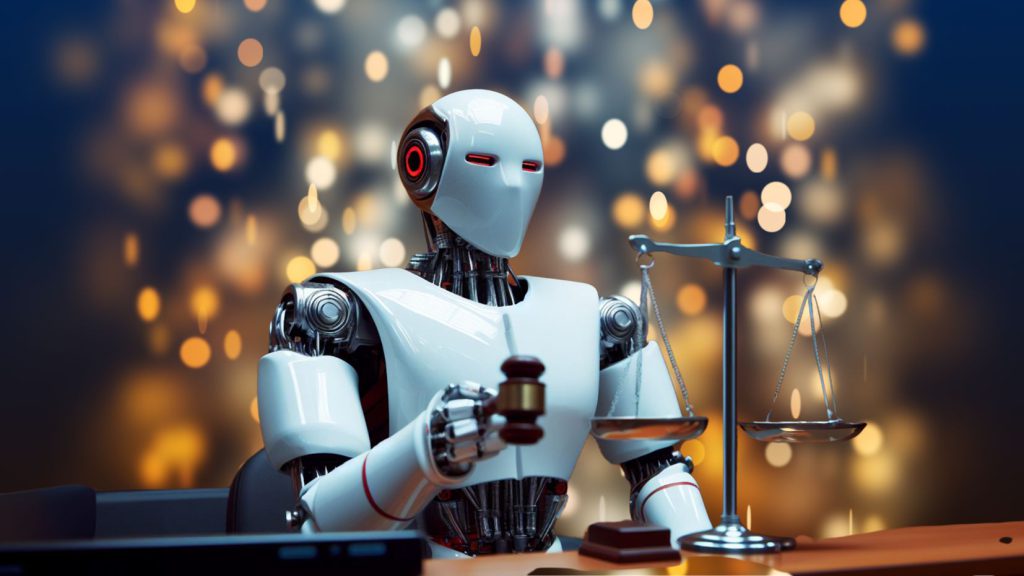Leverage GPT technology to enhance your legal support and streamline business operations
In the rapidly evolving business landscape, artificial intelligence (AI) is becoming increasingly valuable for entrepreneurs, particularly in legal matters. GPT (Generative Pre-trained Transformer) technology is making legal support more accessible and cost-effective, changing how businesses approach legal challenges.
What is a GPT Legal Assistant?
A GPT legal assistant is an AI-powered tool that can analyze contracts, identify potential issues, and offer solutions. For business owners, this means access to quick legal insights without always needing to consult a human lawyer. These AI assistants can process vast amounts of legal information rapidly, offering a new approach to handling legal matters.
Step-by-Step Guide: Creating Your AI Legal Assistant
Here’s how to set up your own GPT legal assistant:
- Navigate to ChatGPT and select “Create” in the GPTs section
- Name your assistant (e.g., “LegalAidAI”)
- Define its functions
- Upload sample documents for training
- Set access permissions
When configuring your AI, provide clear instructions. Here’s an example prompt:
You are an AI legal assistant specializing in business law. Your tasks include:
1. Reviewing and analyzing business contracts and legal agreements
2. Explaining complex legal terms in simple business language
3. Identifying potential legal risks or unfavorable terms
4. Suggesting modifications to improve the company's legal position
5. Providing general advice on business legal compliance
6. Answering questions about common legal issues for entrepreneurs
When reviewing documents:
- Highlight clauses that may pose risks to the business
- Explain the legal implications of key terms and conditions
- Identify missing elements typically included in similar agreements
- Flag areas where expert legal consultation might be necessaryThis prompt gives your AI assistant clear guidelines for assisting with legal matters, covering key areas like contract review and compliance advice.
Getting Started: Best Practices
- Start Small: Begin with simple tasks like reviewing standard contracts
- Educate Your Team: Ensure everyone understands the AI’s capabilities and limitations
- Regular Updates: Keep your AI assistant current with new business information and industry regulations
- Feedback Loop: Regularly review and adjust the AI’s performance to improve accuracy and relevance
Practical Applications for Businesses
- Contract Analysis: Quickly review agreements to identify potential risks
- Document Drafting: Assist in creating basic legal documents
- Legal Research: Find relevant laws and regulations for specific situations
- Compliance Checks: Help ensure business practices follow legal requirements
- Intellectual Property Guidance: Offer basic information on trademarks and patents
Benefits for Business Owners
- Cost Reduction: Lower expenses on routine legal tasks
- Time Efficiency: Obtain quick answers to legal questions
- Enhanced Legal Understanding: Improve legal literacy over time
- Risk Management: Identify potential legal issues early
- Accessibility: 24/7 access to basic legal support
As AI technology advances, we can expect:
- Hybrid Models: AI assistants working alongside human lawyers
- Specialized AI: Legal helpers tailored to specific industries
- Integration with Business Software: Creating a seamless workflow for legal and operational tasks
- Improved Natural Language Processing: AI that can understand and respond to complex legal queries with greater accuracy
The Future of AI in Business Legal Support
GPT legal assistants are reshaping how businesses handle legal matters, offering valuable support that was previously out of reach for many small and medium-sized enterprises. While these AI tools can’t replace human lawyers for complex issues, they provide a level of legal insight and assistance that can significantly benefit entrepreneurs.
Effective use of AI legal assistants can lead to improvements in efficiency, cost-saving, and risk management. The key is understanding both the capabilities and limitations of this technology, using it as a powerful complement to traditional legal services.
As AI continues to evolve, it’s not just changing how businesses deal with legal issues — it’s redefining legal support for entrepreneurs. For business owners ready to stay ahead of the curve, exploring how AI legal assistants can boost operations may provide a competitive edge in today’s fast-paced business world.
Remember, the goal is to leverage this technology to enhance your legal strategy, not to replace professional legal advice entirely. As with any tool, its effectiveness depends on how well it’s understood and applied within your specific business context.
The guide and article do not constitute an offer of legal advice. Legal advice provided by artificial intelligence tools is not intended to replace professional legal advice from a qualified attorney.
Alexander Kap is an AI expert for businesses and a Contributor to Forbes Israel. Forbes Israel Contributors are independent writers selected by the Forbes editorial team, experts in their fields, providing current commentary and reviews in their area of expertise. The content is their own and under their responsibility and is not sponsored content.





